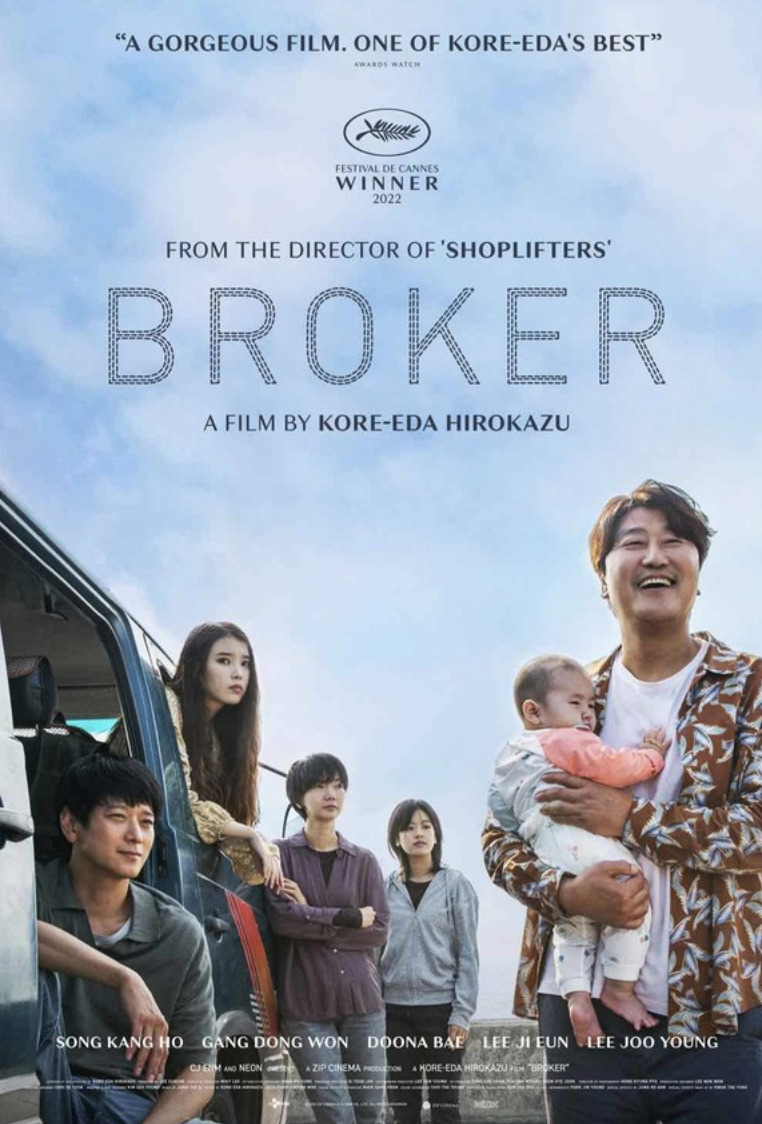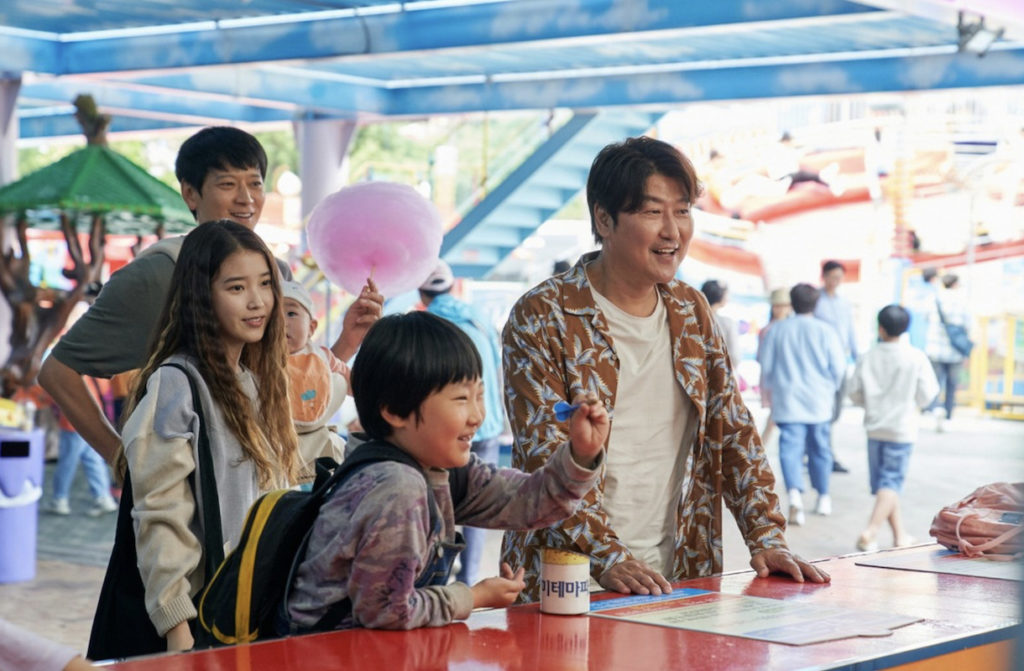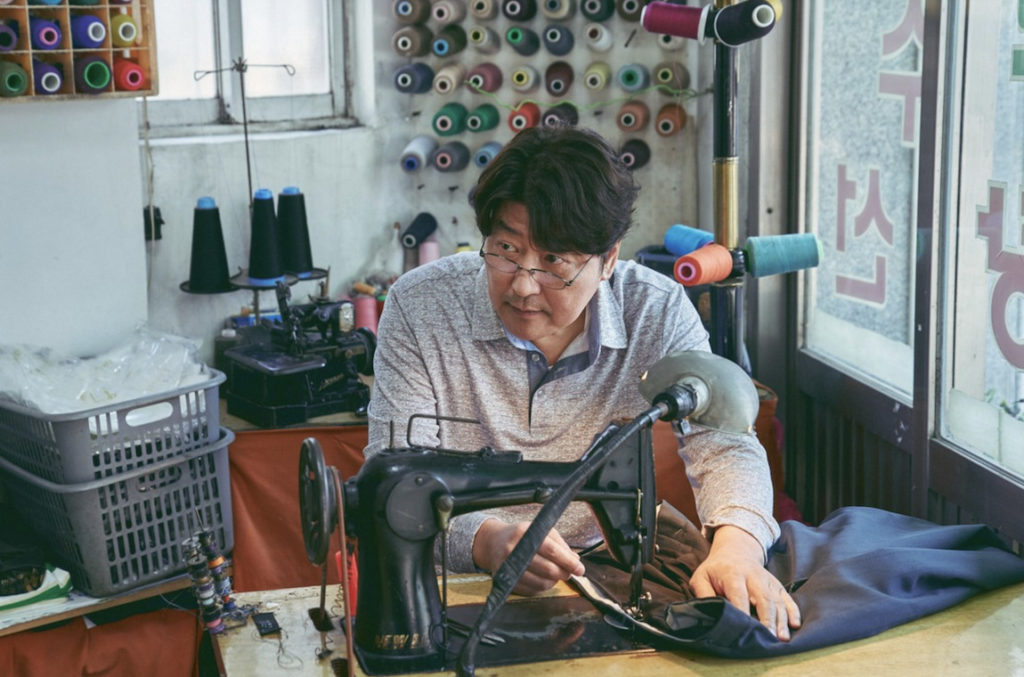
Synopsis : The film follows two brokers who sell orphaned infants, circumventing the bureaucracy of legal adoption, to affluent couples who can’t have children of their own. After an infant’s mother surprises the duo by returning to ensure her child finds a good home, the three embark on a journey to find the right couple, building an unlikely family of their own.
Rating: R (Some Language)
Genre: Drama
Original Language: Korean
Director: Hirokazu Koreeda
Producer: Lee Eugene
Writer: Hirokazu Koreeda, Hirokazu Koreeda
Release Date (Theaters): Dec 26, 2022 Limited
Runtime: 2h 9m
Distributor: NEON
Exclusive Interview with Director Hirokazu Koreeda
Q: In 2019, you teamed up with Catherine Deneuve, Juliette Binoche, and Ethan Hawke for the film, “The Truth.” Those were actors that you wanted to work with. Did you happen to make a Korean film because you wanted to work with Song Kang-ho, and Kang Dong-won just like you did with “The Truth” or was it because you wanted to shoot a Korean film?
Hirokazu Kore-eda: It’s pretty much the same as when I made “The Truth.
” It’s all about the actors. Me and Song Kang-ho have been talking about doing something together for almost 10 years, trying to find a good subject to tackle from time to time. One day, I came up with the idea of “baby box” as a motif, then once I understood that “Baby Box” was already established in Korean society, I gathered all the Korean actors including Song Kang-ho to tackle this topic, which was almost six years ago.
Q: I heard that you talked to people who were actually entrusted to the church in the baby box. In conversations with them, what sensibilities attracted you and were reflected in the production of this film?
HK: I interviewed people as to what the “baby box” is about in Seoul and heard an engaging story from people involved there. However, it is not possible to freely contact the people who came from the baby box background, so you can’t directly ask questions of them or talk to the children at the church where the “baby box” is currently installed. During this process, we interviewed people who mainly were placed in nursing homes and are now living there, or who came from the “baby box” background and are now adults.
The other day, when I was promoting this film in France, I happened to meet a journalist who came from that background. It was interesting to hear his story.
Q: The character Sang-Hyeon, played by Song Kang-ho, is obviously a criminal who sells children, but he’s also a very humanistic character who washes the children’s bodies and takes them to the hospital when they have a fever. Didn’t you write a script with specific actors in mind? How did you discuss the script with Song Kang-ho and Kang Dong-won prior to making this film?
HK: Yes, it was completely Ategaki [writing a script with specific actors in mind]. As for Gang Dong-won, when I was watching his performance, I thought that setting him up as a man who lost his place to get back to would make his personality stand out. While I was thinking about the children’s nursing home, I decided only the vertical axis [who is the setting to story as opposed to horizontal axis which is the characters] to make it a story about understanding and indirectly forgiving his mother through the woman named So-young [played by Ji-eun Lee] which is in front of Dong-soo [Gang Dong-won]’s eye throughout the journey.
When it comes to Sang-hyeon [Song Kang Ho], he’s basically someone who doesn’t know if he’s good or bad. Song Gang-ho who is also very good at acting in the shadows or expressing yin and yang and so on. I exchanged opinions during the conversation. However, in terms of story, since we started filming without really solidifying the content, which included the ending. But after Sang-hyeon [Song Kang Ho] moved to Seoul, I had a lot of opinions about how he would act. There’s a part of that decision which was made while we were shooting and exchanging ideas.

Q : You’ll be re-teaming with Bae Doona since you did “Air Doll.” Of course, the production is different for each film, but is there something about the part that makes it easy for you to direct her?
HK: After we worked together on “Air Doll,” we got to know each other personally. She understands what I want to do the most [of anyone on this]. For example, the Japanese language has a lot of ambiguity, so she thinks that it’s important to understand the intention of the Japanese language and reflect it in the performance. I think that the witty and cynical aspects of the woman named Sio-jin were beautifully expressed by Bae Donna.
Q: Can you explain about the casting of Seung-soo Im as Have-jin who lives in the children’s nursing home where Dong-soo once lived.
HK: I chose him out of those at the audition. South Korea doesn’t have child acting agencies like Japan does, so the task was to search for children who were attending acting schools. In a sense, it would be a substitute for a child actor’s agency. As some know my audition process, I don’t hand over the script to the children. I just say the lines at the audition in a way that I would do with the films. Among those children, Seung-soo Im’s acting was the most natural, so I chose him. However, he was too free-spirited, when he was on the set, it was really difficult, but what you see in the footage was great.
Q: You worked in South Korea this time and France before, but are there any elements that you suggest should be incorporated into the Japanese film industry?
HK: In terms of directing actors overseas, it hasn’t changed much for me, so I thought that my way of doing things wouldn’t change that much, even if it was in a different language. However, if there is something I would like to incorporate into the Japanese film industry, it would be by reforming labor conditions. Japan is lagging behind the most, so we just need to start to work on it. What should I do about harassment? What should I do about long working hours? How can I organize my feelings to create a place to work properly? France and South Korea are very advanced in that area. I think we have to do it properly.

Q: In France, you worked with Catherine Deneuve and Juliette Binoche, and this time in South Korea, you worked with Song Kang-ho and Kang Dowon-won. Are there any American actors that you want to work with in the U.S? If so, what kind of story do you have in mind?
HK: There’s no such plans yet. However, when I see American actors at film festivals or parties, I admire them. Sometimes I wonder if I can do something with Christian Bale, but, of course, I’m still at the fan level. When I saw Michelle Williams, she made me want to think about an idea for the film. But as of now, I don’t have any plans. I hope I’ll have a chance to make a film in the U.S someday.
Q: What was it like working with cinematographer Hong Kyung-pyo and composer Jung Jae-il who also worked on the film, “Parasite”? It seems that collaboration went very smoothly.
HK: Yes, it was actually very smooth. In particular, not only he worked on “Parasite” but also on “Burning” and “The Wailing” as well, so I thought that he could shoot in a way that fits my style because he consistently shoots three different types of directors, the top three directors in Korea. In that sense, I think he’s very broad.
Q: What do you expect from young Japanese directors who try to work overseas in the future?
HK: There are new filmmakers in their 40s and even younger generations.
Of course, it is not important to win awards at overseas film festivals, but there are directors who are active on such stages or attract attention. I think it’s a very good thing that they came out, and I think that whether we can support them in that way is the homework of Japanese films in the future.

Check out more of Nobuhiro’s articles.
Here’s the Trailer of the film.


[…] the amazing interview with Director Hirokazu […]